#latin american women
Explore tagged Tumblr posts
Text
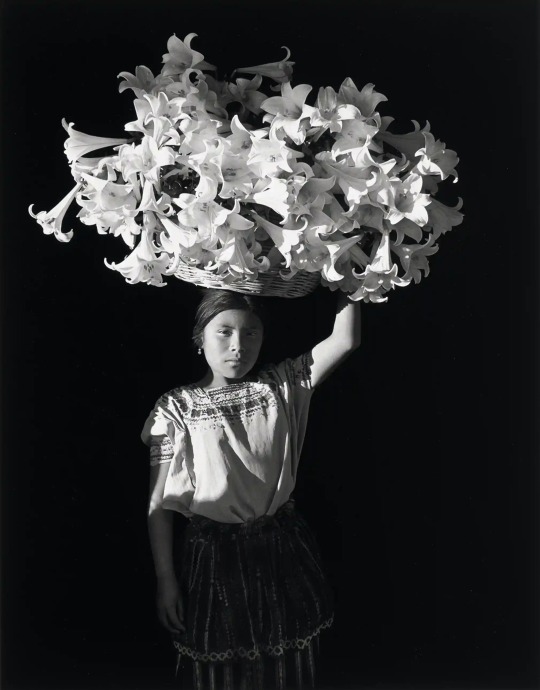
Basket of Light, Flor Garduño, 1989
#flor garduno#photography#vintage photography#vintage#black and white photography#1980s#1989#mexican#female artists#women artists#portrait#latin american art#artists of color#100 notes#250 notes#500 notes
765 notes
·
View notes
Text

Iron Will, Margarita Cabrera, 2013
Screenprint with vinyl and thread 30 x 20 in. (76.2 x 50.8 cm) Smithsonian American Art Museum, Washington, DC, USA
#art#margarita cabrera#contemporary art#21st century art#21st century#2010s#screenprint#print#works on paper#smithsonian american art museum#mexican#american#chicano art#female artists#women artists#artists of color#latin american art#100 notes
175 notes
·
View notes
Text
//Okay, ooc post.
I try my BEST not to be political on here, but me and my character being people of color, me and my character being openly queer, me reblogging posts about Palestine, etc. You can probably tell my stance on these things.
I just want everyone to stay safe. Ik everything kinda sucks ass right now. But, please, if you disabled, a person of color, an immigrant, have a uterus, or queer, please try your best and stay safe. Please don't kill yourself. I know a lot of people don't have the funds to move, and that's okay. We're all worried. I'm fucking terrified that half the people I know will be deported or that my friends and family are going to be harmed. But, the best we can do right now is be angry.
Worrying gives us the feeling of powerlessness, and the worst we can do right now is feel like we have no power. Instead, turn that worry into anger. Be angry at the fact that a racist piece of shit one. Be angry that your friends, family, colleagues, etc, could be harmed in all of this. Be angry that our country is continuing with a genocide. Because if we're angry, we can have the power back. We can take a stance if we're angry. If you have to go down, might as well go down kicking and screaming.
And remember. PLEASE stay safe. PLEASE find support. My school has an LGBT club, Latino leaders club, and Black History club for people who want to feel safe. Please find a space like that. It's the best we can do right now.
#america#donald trump#lgbt#latino#latina#latine#black#african american#lgbtqia#immigration#immigrants#women#woman#usa#ooc#mod talks
73 notes
·
View notes
Text
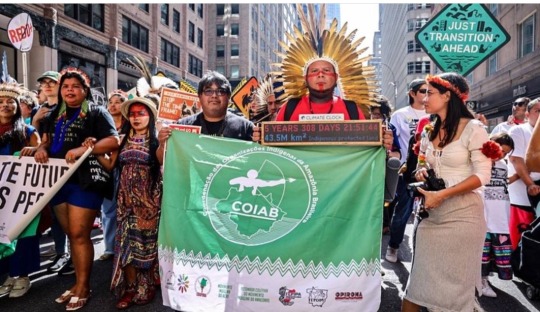
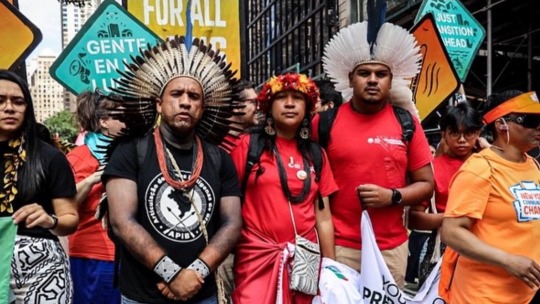
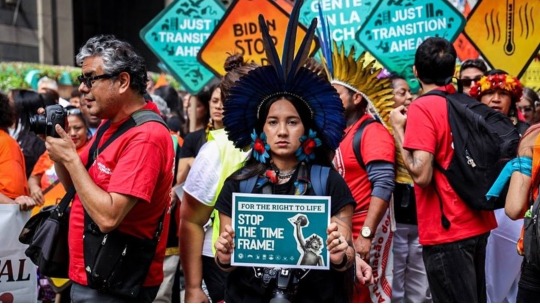
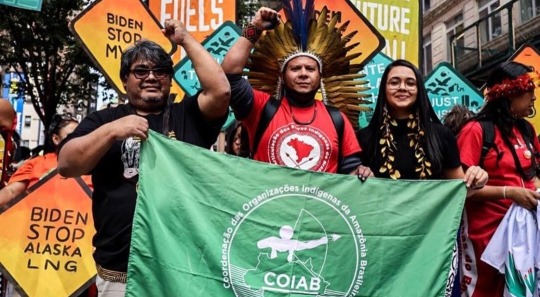
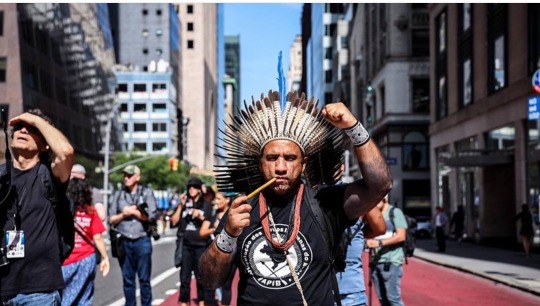
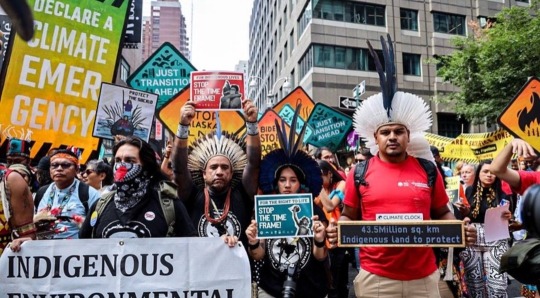
"Trial scheduled for September 20th at the Supreme Federal Court may determine the future of Indigenous Lands in Brazilian territory and be crucial for the global climate. The indigenous movement is mobilizing across Brazil, and an indigenous delegation from Apib is in New York during Climate Week to strengthen the international mobilization campaign in defense of Indigenous Lands rights."
"We are on the land, and the land is within us. If the land dies, we as indigenous peoples die."
The Articulação dos Povos Indígenas do Brasil (Articulation of Indigenous Peoples of Brazil — APIB) is calling for nationwide mobilizations this week and participating in the New York Climate Week to alert the world to the risks of the Supreme Federal Court (STF) judgment scheduled for September 20th. The court will vote on the legitimacy of the legal concept known as the "Temporal Framework," advocated by the Brazilian agribusiness, which could reevaluate Indigenous Land demarcations and impact global climate crisis mitigation efforts.
The Temporal Framework suggests that only indigenous people who can prove they were living on the land in 1988, the same year the Federal Constitution was created, should have rights to the land. This disregards the forced displacements of hundreds of indigenous groups who could only reclaim their traditional lands after Brazil's redemocratization in the late 1980s.
This week, the 15th edition of Climate Week is taking place in New York from September 17th to 24th, alongside the 78th Session of the United Nations General Assembly from September 19th to 23rd, which will feature a speech by President Lula during its opening. A delegation of 10 indigenous leaders is in New York to participate in Climate Week's activities. The international mobilization's goal is to emphasize to the world that the Temporal Framework is a threat to the lives of Brazil's indigenous peoples and could exacerbate the climate crisis, as Indigenous Lands serve as a reservoir of life on the planet.
Apib and its regional organizations are reinforcing mobilizations in territories, cities, and Brasília against the Temporal Framework on September 20th. The goal is to monitor the trial and strengthen the next steps of the indigenous movement's fight. The organizations within Apib mobilized over 220 protests in 21 states, including the Federal District, between May and June.
Five Supreme Federal Court (STF) justices are yet to vote in the trial. The current tally stands at four votes against the Temporal Framework thesis and two in favor. Justices Edson Fachin, Alexandre de Moraes, Cristiano Zanin, and Luís Roberto Barroso have expressed opposition to the agribusiness-backed thesis, while the only favorable votes came from justices appointed by former President Jair Bolsonaro, André Mendonça, and Nunes Marques.
On the same day as the STF vote, the Brazilian Senate attempts to put the Temporal Framework into law. The ruralist caucus in Congress seeks to create tension with the Brazilian judiciary since there is a possibility that the STF may invalidate the Temporal Framework thesis.
In addition to the Temporal Framework, Bill 2903 proposes other setbacks to the rights of indigenous peoples, such as the construction of highways and hydroelectric plants in indigenous territories without free, prior, and informed consent from affected communities. The proposal also aims to allow farmers to enter production contracts with indigenous people, violating the rights of indigenous peoples to the exclusive use of demarcated territories.
While some falsely claim that "there is too much land for too few indigenous people in Brazil," Apib counters that there is too much land for too few farmers and that agribusiness promotes the illegal invasion of indigenous lands. The entity asserts,
"There is no solution to the climate crisis without guaranteeing the rights of indigenous peoples and the demarcation of their territories."
Currently, nearly half of Brazil's land is in the hands of rural producers. Of the total land in the country, 41% corresponds to rural properties, 13.7% to indigenous lands, and 45.2% to other purposes, according to data published in the Official Gazette of the Union. Indigenous Lands are a guarantee of life for indigenous peoples and for all of humanity, which depends on the climate's future.
"As worsening climate crisis unfolds, many will be marked in history as accomplices to the new colonialism threatening the survival of us, indigenous peoples who inhabit the vast territory known as Brazil, and the future of all humanity because there is no solution to the climate crisis without the involvement of indigenous peoples," emphasizes Dinamam Tuxá.
Key activities of Apib during the 15th edition of Climate Week from September 17th to 24th:
On September 17th, Apib participated in the Climate Week march through the streets of New York in support of the Fight Fossil Fuel Strike. The indigenous delegation from Apib denounced the threat posed by the Temporal Framework thesis, highlighted the indigenous emergency situation concerning extractive industries and agribusiness that lead to multiple instances of violence in our territories. Additionally, as part of the Climate Week agenda, it's worth noting that Apib's executive coordinators Kleber Karipuna, Dinamam Tuxá, and other members of the indigenous delegation will participate in a talk on September 19th titled "FCLP: Rights, Participation, and Benefits for Indigenous Peoples and Local Communities in Forest Climate Financing," organized by the Forest and Climate Leaders Partnership. On September 22nd, a portion of the delegation will be present at a dialogue co-organized with H.E Razan Al Mubarak, the current president of the International Union for Conservation of Nature, to assess progress in the COP28 agenda with the aim of collectively identifying meaningful and respectful ways for Indigenous Peoples to engage in the COP.
About APIB
The Articulation of Indigenous Peoples of Brazil (Apib) is a nationally recognized entity within the indigenous movement in Brazil, created from the grassroots up. It brings together seven regional indigenous organizations (Apoinme, ArpinSudeste, ArpinSul, Aty Guasu, Conselho Terena, Coaib, and Comissão Guarani Yvyrupa) and was founded with the purpose of strengthening the unity of our peoples, fostering coordination among different regions and indigenous organizations across the country, as well as mobilizing indigenous peoples and organizations against threats and infringements on indigenous rights.
Support/donate to APIB
APIB Instagram page
APIB Website
#yara.txt#brasil#brazil#latin america#america latina#south america#brazilian politics#brazilian indigenous people#indigenous people#indigenous#native american#native women#first nations#ndn#ndn tag#ndn tumblr#latinoamerica#environmentalism#climate crisis#climate emergency#nature#naturism#naturist#anti capitalism#capitalism#anti colonialism#anti colonization#colonialism#colonization#neocolonialism
187 notes
·
View notes
Text
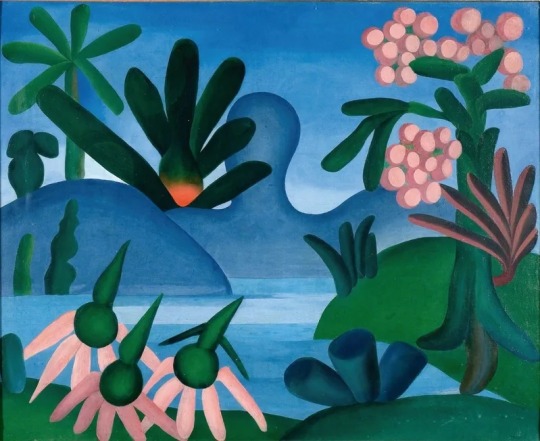
Tarsila do Amaral
O Lago
1928
#tarsila do amaral#brazilian artists#Brazilian art#Brazilian painter#women artists#woman artist#woman painter#Latin American artist#aesthetic#beauty#floral painting#floral art#floral aesthetic#modern art#art history#aesthetictumblr#tumblraesthetic#tumblrpic#tumblrpictures#tumblr art#tumblrstyle#artists on tumblr
133 notes
·
View notes
Text

#postsss#fotosss#vogue#young miko#miko#puerto rico#puerto rican#female artists#reggaeton#latin trap#bad bunny#feid#kehlani#dei v#karol g#women#fashion model#leather outfit#leather#black and white photography#fashion photography#photography#american fashion#fashion photoshoot#street fashion#luxury fashion#high fashion#fashion#street style#women’s fashion
23 notes
·
View notes
Photo

Mayra Vom Brocke — Los Diablos de La Bebida (oil on canvas, 2022)
191 notes
·
View notes
Text


This might be the outfit I wear for my hunny's birthday this weekend :) Except I'll be putting on jewelry, some nice heels, and let my hair down 😁
#queer couple#san francisco#transfem#transgender#lgbtqia#the bay#transgirl#travel#writing#queer#queer woman#queer relationships#queer community#trans women are real women#trans woman#trans women are valid#trans women positivity#trans women are beautiful#trans women are amazing#trans women#latino#latina#latin girls#latin beauties#latin American#lgbtqi community#lbgtq#lgbtq community#lgbt pride#lgbtq
23 notes
·
View notes
Text
Happy Hispanic Heritage Month!
🎊🇧🇷🎊🇲🇽🎊🇭🇹🎊🇵🇪🎊🇨🇷🎊
I hope all my Hispanic and Latina sisters are having a amazing day!
🎊🇨🇴🎊🇯🇲🎊🇨🇱🎊🇳🇮🎊🇨🇺🎊
To celebrate here is a collection of history facts that help to showcase are impact on history!
🎊🇦🇷🎊🇵🇦🎊🇭🇳🎊🇺🇾🎊🇻🇪🎊
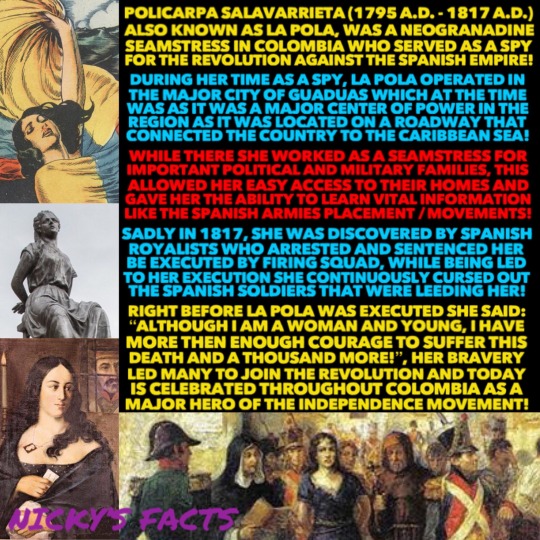
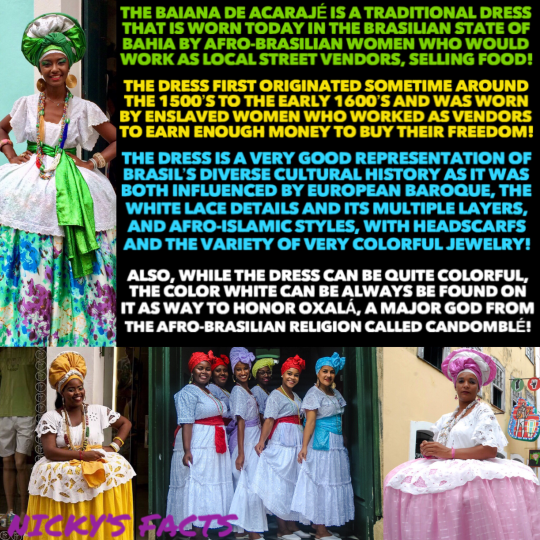


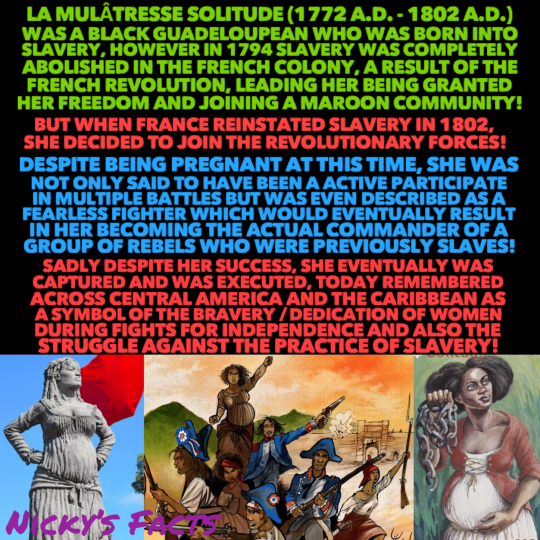


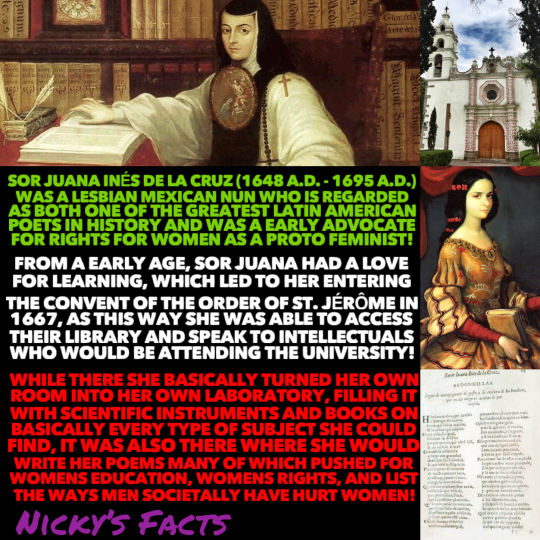

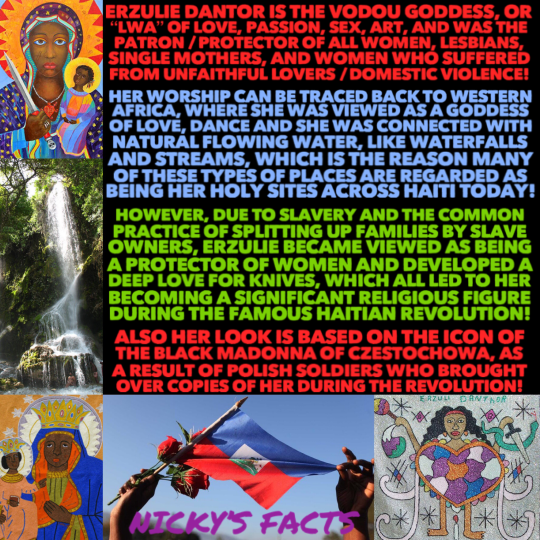
#history#hispanic heritage month#latin america#womens history#hispanic women#central america#south america#black girl magic#united states#latina#lgbt#sisterhood#afro latina#hispanic coquette#latina baddie#latin american history#girl blogger#women empowerment#nickys facts
79 notes
·
View notes
Text
WOMEN IN BRAZIL NEED HELP!
Our parlament proposed a law project that criminalize abortion in cases when it came from a sexual abuse. In Brazil, abortion is not a legalized procediment unless in some three situations and now extreme rigth deputies are trying to ban these too! And the SCARIEST part in all this is the fact that the penalty for this crime (again, we're talking about sexual abuse victims) will be able to achieve 20 YEARS IN PRISON. Even the penalty for sexual violence isnt that long, they want to criminalize and arrest VICTIMS.
Please, we need support from feminist movements. We already had thousand of women who lost everything because one of our states is under water. Now they want to attack our basic rights. Where are the feminism from other countries when it comes to help latin american women, in marjority, black women?
#helpbrazilianwomen#abuser is not a father#children are not mothers#feminism#latin american#help women#brazil#brasil#law#injustice#grief
16 notes
·
View notes
Text

#art#photography#marisol mendez#bolivia#latin america#native american#aymara#quechua#women by women#photographs
63 notes
·
View notes
Text

The Flower Basket, Frida Kahlo, 1941
Oil on copper 31 ⅜ in. (80 cm) in diameter
#art#painting#frida kahlo#modern art#latin american art#20th century art#20th century#1940s#flowers#mexican#oil#female artists#women artists#100 notes
111 notes
·
View notes
Text

Kali Uchis at the Latin Billboard Music Awards 24'
#kali uchis#singer#artist#latina#celebrity#latin american#billboard music awards#2024#awards show#music industry#musician#pretty#womens#dress#printed#look of the day#glamour#floral#miami#mediapro studios#corset#feminine
8 notes
·
View notes
Text

Retrato do Barão Angelo Milfastos quando criança, 1952
Essa gravura de Remedios Varo na verdade é um presente de aniversário! Segundo Walter Gruen, Remedios gostava muito de presentear seus amigos com pequenos trabalhos seus. Essa gravura foi dado ao pintor Juan Soriano e contém no verso uma historinha sobre esse personagem fofo mas também um pouco macabro. Parece até a Vandinha. Dá uma olhada em nosso site para ler o que Remédios escreveu sobre a infância do barão-personagem, a faca e a cabeça.
.
.
Portrait of Baron Angelo Milfastos as a child, 1952.
Picture made on paper as a birthday gift to the artist and Remedios' friend Juan Soriano. If it wasn't for the hat, the baron would be Wednesday herself.
#surrealism#remedios varo#juan soriano#mexican art#women artists#surrealismo#unpopular artists#mulheres pintoras#latin american art#artistas latino americanos
100 notes
·
View notes
Text
It's also not a coincidence that homeopathy has exploded in popularity in the US especially, where a few hundred dollars in "natural treatments" is so much more accessible to the average person than the thousands you can rack up in a single doctor's visit.
I'm around $3000 in medical debt right now because of one ER visit that ended with me basically getting pat on the back and told I was fine. The medical situation in the US is dire and these homeopathy companies are absolutely taking advantage of that.
#also can we talk about how so many of these companies mix native american latin american and east asian cultures in their branding#as a way to frame themselves as ''traditional'' to appeal to immigrant women specifically
80 notes
·
View notes
Text

Women's Suffrage in the Americas provides an outstanding analysis of the long and often drawn-out process of attaining women's suffrage in the western hemisphere. Due attention is given to the unevenness of the process, not only across the Americas but within each country with respect to which groups of women (and men) were excluded as suffrage was extended.
#uwlibraries#history books#women's history#political history#latin american history#american history#canadian history
3 notes
·
View notes